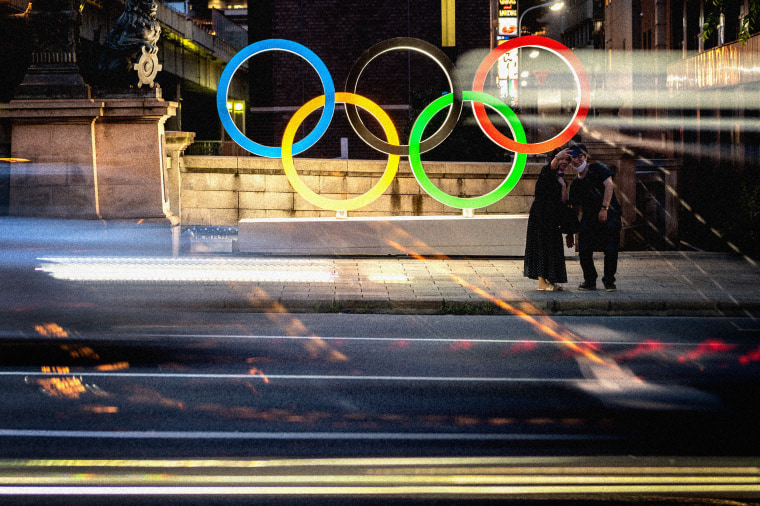A Texas man was arrested Wednesday after federal authorities said he distributed performance-enhancing drugs to athletes ahead of the 2020 Tokyo Olympics, marking the first time criminal charges have been filed under a new law that prohibits doping schemes at international sports competitions.
The man, Eric Lira, a naturopathic therapist from El Paso, is alleged to have obtained and distributed the drugs to two athletes “for the purpose of cheating” as they were preparing for the Tokyo Games last summer, the U.S. Attorney’s Office for Southern New York announced Wednesday.
He was to appear in court in the Western District of Texas later Wednesday. It was not clear whether he had an attorney.
Lira, 41, is alleged to have obtained versions of drugs widely banned in competitive sports — including human growth hormone and the “blood building” drug erythropoietin — as well as additional prescription drugs from sources in Central and South America, according to a complaint unsealed Wednesday in federal court in Manhattan.
Lira is accused of distributing the drugs to two athletes, whom the complaint refers to as “Athlete-1” and “Athlete-2.”
He used an encrypted messaging app to speak with the Olympians, according to the complaint.
In an exchange on Nov. 18, 2020, Athlete-1 asked Lira what quantity of drugs she would need for herself and Athlete-2, authorities said.
Throughout the scheme, Athlete-1 and Lira “specifically discussed the ‘testability’ of those drugs by anti-doping authorities,” according to the complaint.
“So I took 2000ui of the E [erythropoietin] yesterday, is it safe to take a test this morning?” the athlete asked on or about June 13, authorities said.
Lira, according to the complaint, replied: “Good day [Athlete-1] . ... 2000 ui is a low dosage.”
Athlete-1 added: “Remember I took it Wednesday and then yesterday again / I wasn’t sure so I didn’t take a test / I just let them go so it will be a missed test.”
In another message on or about June 22, Athlete-1 is alleged to have raved about the effectiveness of the drugs.
“Hola amigo / Eric my body feel so good / I just ran 10.63 in the 100m on Friday / with a 2.7 wind / I am sooooo happy / Ericccccccc / Whatever you did, is working so well," the athlete wrote, according to the complaint.
Authorities said that before Athlete-1 arrived in Tokyo for the Summer Games, Lira sent a message encouraging his client.
“What you did ... is going to help you for the upcoming events. You are doing your part and you will be ready to dominate,” he wrote, according to the complaint.
But the athlete was eventually exposed and suspended from competition.
Athlete-1 underwent an out-of-competition blood collection process for drug testing by the Athletics Integrity Unit, which seeks to ensure fair competition and prevent doping at the Olympics, on or about July 19, the complaint says.
The results showed use of human growth hormone, and on or about July 30, Athlete-1 was provisionally suspended from Olympic competition, including the women’s 100-meter semifinals, set to take place that same evening.
Lira is charged with violating the Rodchenkov Act, which was passed in December 2020 and forbids doping conspiracies at any major international sports competition. The violation carries a maximum prison term of 10 years.
He is also charged with conspiring with others to violate U.S. drug misbranding and adulteration laws, which carries a maximum prison term of five years.
U.S. Attorney Damian Williams said in a statement that the charges send “a strong message to those who would taint the Games and seek to profit from that corruption.”
“At a moment that the Olympic Games offered a poignant reminder of international connections in the midst of a global pandemic that had separated communities and countries for over a year, and at a moment that the Games offered thousands of athletes validation after years of training, Eric Lira schemed to debase that moment by peddling illegal drugs,” he said.
